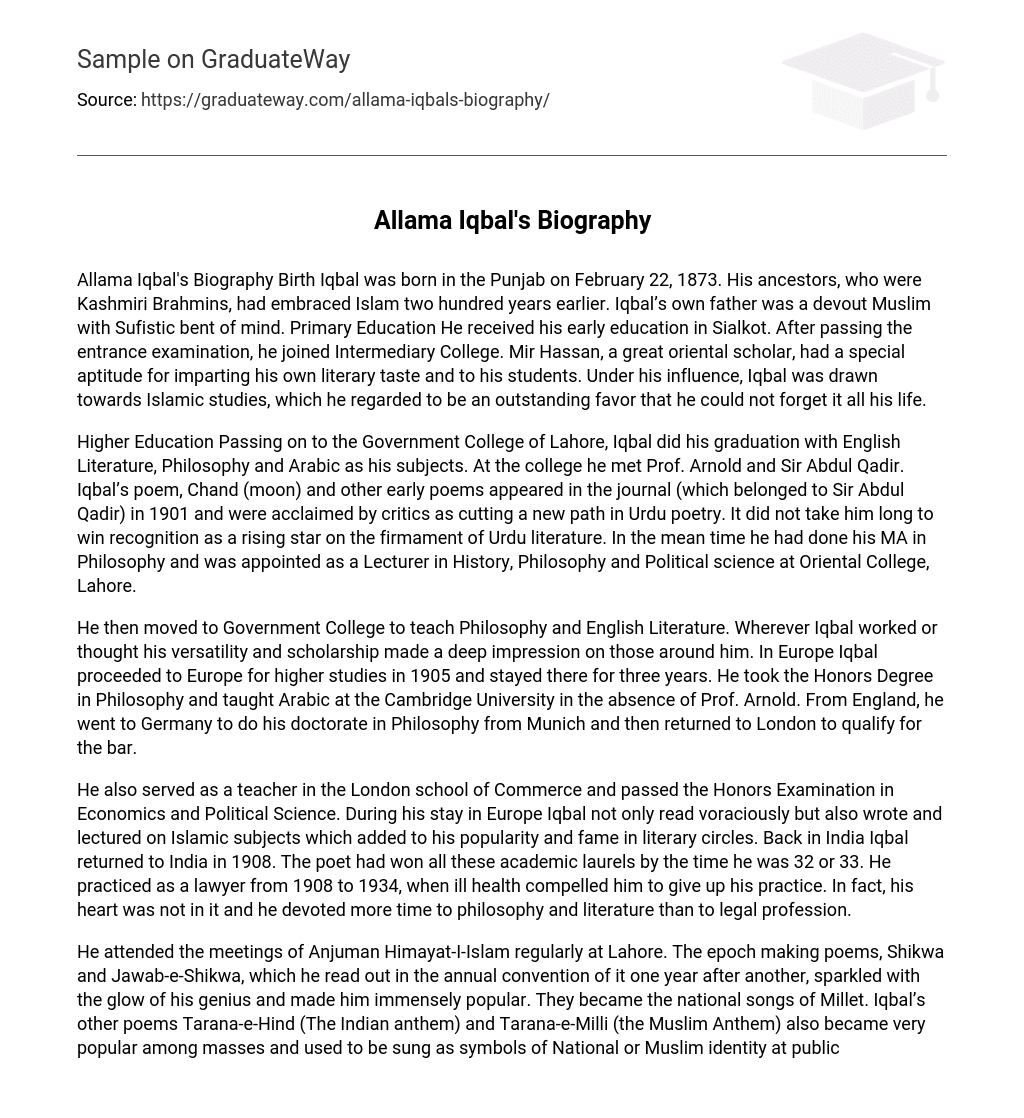Birth Iqbal was born in the Punjab on February 22, 1873. His ancestors, who were Kashmiri Brahmins, had embraced Islam two hundred years earlier. Iqbal’s own father was a devout Muslim with Sufistic bent of mind. Primary Education He received his early education in Sialkot. After passing the entrance examination, he joined Intermediary College. Mir Hassan, a great oriental scholar, had a special aptitude for imparting his own literary taste and to his students. Under his influence, Iqbal was drawn towards Islamic studies, which he regarded to be an outstanding favor that he could not forget it all his life.
Passing on to the Government College of Lahore, Iqbal did his graduation with English Literature, Philosophy and Arabic as his subjects. At the college he met Prof. Arnold and Sir Abdul Qadir. Iqbal’s poem, Chand (moon) and other early poems appeared in the journal (which belonged to Sir Abdul Qadir) in 1901 and were acclaimed by critics as cutting a new path in Urdu poetry. It did not take him long to win recognition as a rising star on the firmament of Urdu literature. In the mean time he had done his MA in Philosophy and was appointed as a Lecturer in History, Philosophy and Political science at Oriental College, Lahore.
He then moved to Government College to teach Philosophy and English Literature. Wherever Iqbal worked or thought his versatility and scholarship made a deep impression on those around him. In Europe Iqbal proceeded to Europe for higher studies in 1905 and stayed there for three years. He took the Honors Degree in Philosophy and taught Arabic at the Cambridge University in the absence of Prof. Arnold. From England, he went to Germany to do his doctorate in Philosophy from Munich and then returned to London to qualify for the bar.
He also served as a teacher in the London school of Commerce and passed the Honors Examination in Economics and Political Science. During his stay in Europe Iqbal not only read voraciously but also wrote and lectured on Islamic subjects which added to his popularity and fame in literary circles. Back in India Iqbal returned to India in 1908. The poet had won all these academic laurels by the time he was 32 or 33. He practiced as a lawyer from 1908 to 1934, when ill health compelled him to give up his practice. In fact, his heart was not in it and he devoted more time to philosophy and literature than to legal profession.
He attended the meetings of Anjuman Himayat-I-Islam regularly at Lahore. The epoch making poems, Shikwa and Jawab-e-Shikwa, which he read out in the annual convention of it one year after another, sparkled with the glow of his genius and made him immensely popular. They became the national songs of Millet. Iqbal’s other poems Tarana-e-Hind (The Indian anthem) and Tarana-e-Milli (the Muslim Anthem) also became very popular among masses and used to be sung as symbols of National or Muslim identity at public meetings.





